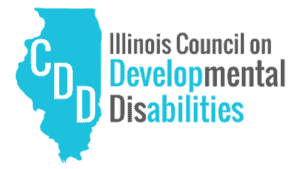The Impact: Engaged Educators Increase Quality and Equity by Cross-pollinating Ideas
The Mississippi training team chose Start Early’s Essential Practices of Educare because it creates space for educators to respond to and get curious about quality. They attribute the early success of their efforts to five guiding principles:
Principle One: Meeting people where they are at is critical to training success.
“What’s unique about The Essential Practices of Educare is that it’s a foundation that a lot of people need. It’s a very relatable PD that gives them opportunities to really talk about what they’re doing and how they can change, or how they can redirect what they’re doing to make it better.” – Amye Hoskins, Mississippi Training Team, Professional Development Specialist, Mississippi Dept of Education, Office of Early Childhood
Principle Two: Equal access to training creates equity among educators.
“Typically childcare doesn’t receive as much PD as the normal public school teacher. So we want to make sure The Essential Practices of Educare is accessible across the state and allows everyone to have the same opportunity.” – Amye Hoskins
“We didn’t originally think about The Essential Practices of Educare as a workforce development equity move, but that’s naturally what’s happening.” – Holly Spivey
Principle Three: Training educators from diverse programs at the same time increases engagement and creates a cross-pollination of best practices across the state.
“We have people from all parts of the state learning from each other as a group. We’ll say, ‘Tell us what’s happening and how do you overcome that challenge,’ so they can listen to people across the state– and then they can take it back to their classroom.” – Tamara Smith, Mississippi Training Team, Professional Development Specialist at Midtown Partners & Childcare Director at Little Samaritan Montessori
Principle Four: A flexible professional development design is essential for localized, authentic conversations about quality.
“I’ve often been surprised with where people take this foundational learning and what they notice. The Essential Practices of Educare has made them more curious about the context in which learning is happening.” – Holly Spivey
Principle Five: When a diverse training team facilitates The Essential Practices of Educare, it increases value and insight for participants.
“As trainers, we are unique – by representing childcare, the Department of Education, and Early Head Start, we relate better with the people on the ground. I understand where you all are coming from and your stress In the classroom …but here are things you can implement that will work.” – Tamara Smith
“Our Start Early practice consultant has been a godsend for us. She’s always willing to assist and give advice; that helped us really understand each other and our vision of what we wanted to accomplish as a training team.” – Amye Hoskins

